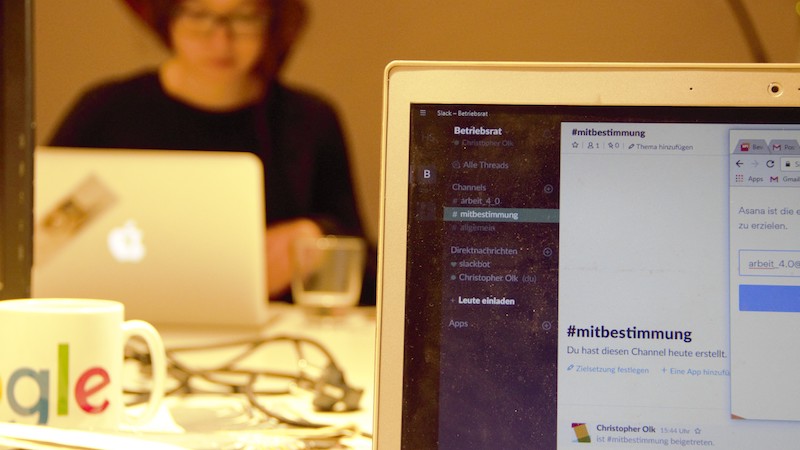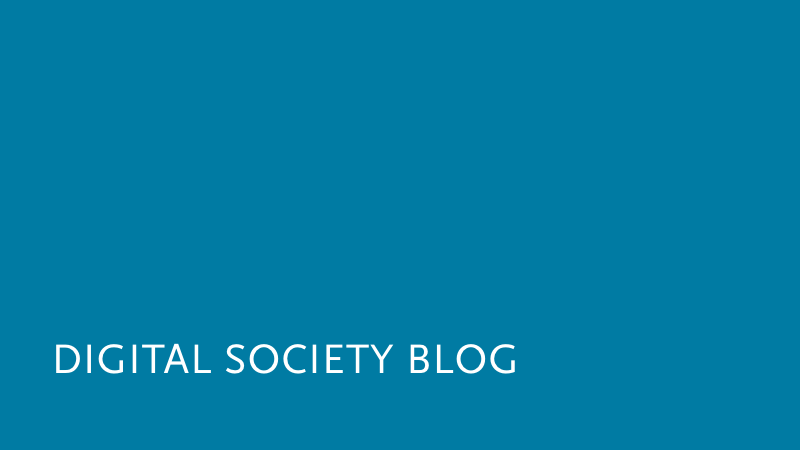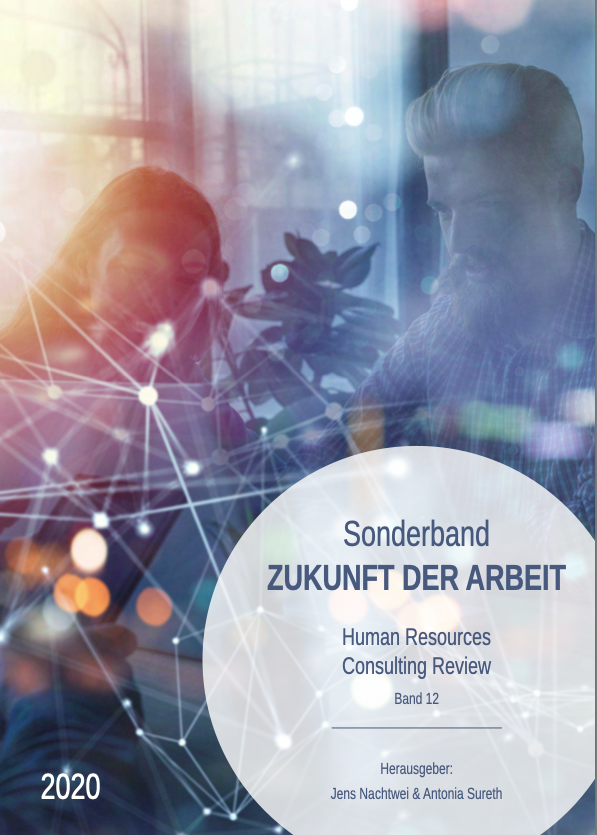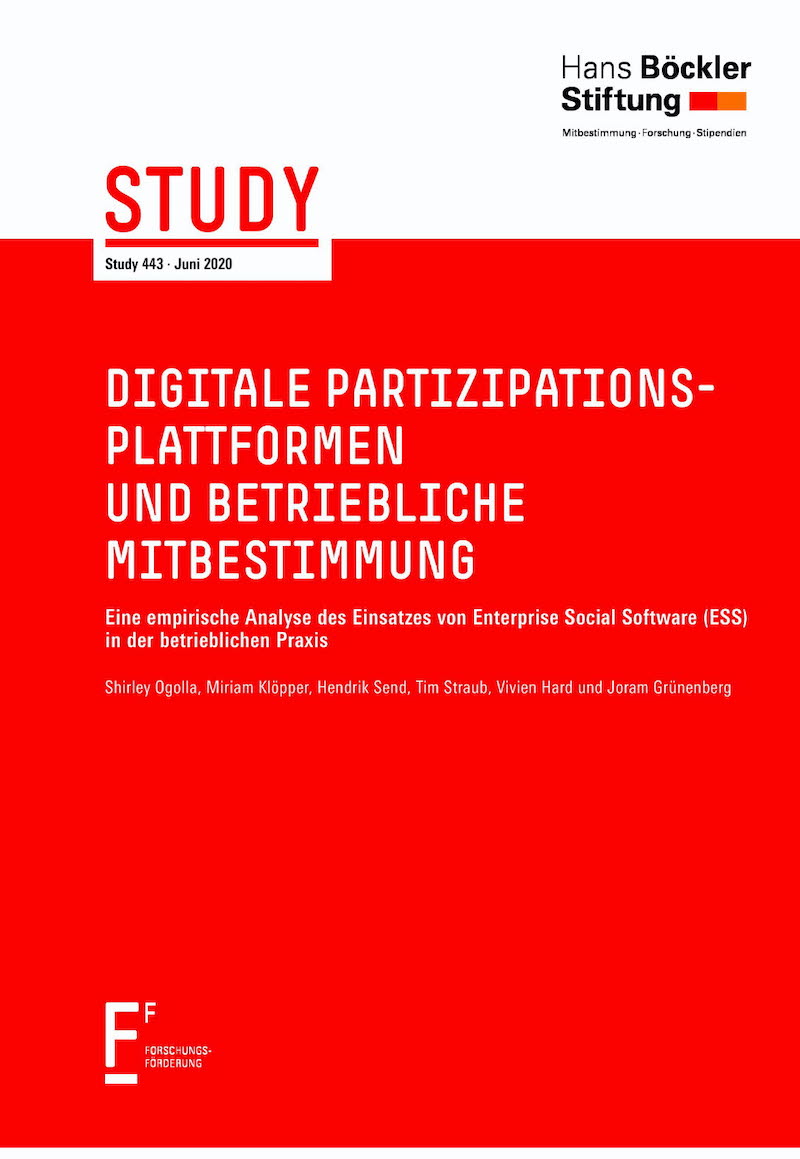
Issues in focus
Work in the digital age
The future of work is now. We work side by side with intelligent technologies. Does that frighten us or does it give us courage? Automation and AI are changing the world of work. How will we work tomorrow, and who gets a say? No machine can give us the answers. At least for now. The issue in focus “work in the digital age” was created in 2017 during the research project Competing and Complementing – The Relation of Co-determination and new Participatory Platforms within Companies. Among others, the research project Artificial Intelligence & Knowledge Work – Implications, Opportunities And Risks currently investigates the future of work.
Hendrik Send (German)
AI & Work
Shirley Ogolla (German)
Digital Participation in the working space
Matthias Spielkamp (English Sub)
Inclusive AI
Shaping AI in the interests of employees
AI offers opportunities and risks for employees. But what can managers and works councils do to enable potential positive effects and avoid negative effects?
Shaping the Airbnb Experience: How platform executives manage their service providers
Have you ever noticed that Airbnb stays tend to resemble each other quite a bit, regardless of whether you are staying in, say, London or Lisbon? If so, this is...
Myth: AI can accurately predict and optimize human behavior
People analytics promises to objectify and optimize employee-related decisions. Managers place high expectations on these tools, especially with a growing number of employees who work from home.
Germany: Hidden Champion of Online Platform Work?
Online freelancing is booming, not only in Germany. A new research hub at the University of Oxford shows how relevant the online gig-economy has become.
Myth: AI is disrupting knowledge work
Recently, applications based on machine learning have made enormous progress and can now take over tasks such as translations, document search or image recognition.
Working from Home but Never Alone: Why People Analytics Have to Be Designed with the Employee in Mind
Remote working challenges management, employees and works councils alike. People analytics could offer support, but only if the software is designed with the employees’ well-being and privacy in mind.
You can only be what you can see: How platforms and advertisers can make job ads algorithms fairer
We successfully concluded the first virtual Clinic of the Ethics of Digitilisation project financed by Stiftung Mercator. Twelve international fellows developed innovative approaches to improving fairness in targeted job advertising....
Despite digital work: hierarchies remain
Providers, such as Slack, Trello or Yam, advertise to increase the participation of employees in organisations. Their software (“enterprise social software”) creates company-internal communication channels that function similar to social…
The potential of digital training strategies in SME
The effects of the corona pandemic currently worry small and medium-sized businesses. At the same time, facing the current crisis, formerly analogue processes are adapted at an impressive speed. Coupled…
Still “Neuland”?
The digitisation of the world of labour – this has almost become a mantra. Whole of Germany is talking about changes in everyday working life, the labour market and industry…
“Cleanliness is next to godliness”
Recruited from the street, content moderators sit in front of screens for hours, filtering violence and hatred from our timelines. They are exploited, mostly left alone with the psychological consequences…
Digital work: Unions focus on the crowd
IG Metall is the world’s largest organised employee representation. For them, as well as for other unions, working in the digital age raises many new challenges and tasks. Stefan Stumpp,…
Creating value with the crowd
The crowd is continuously gaining significance for organisations. What exactly makes it so valuable? This article by Stefan Stumpp, associate researcher at HIIG, inquires which areas of an organisation profit…
Participation Allgäu-Style: The Case of a Bavarian Family Business
Co-creation, transparency and other forms of employee participation are becoming more and more of a necessity for enterprises – not only for start-ups, but also for small and medium-sized, family-owned…
The future of work? Working on the future!
Until 2030, half of our jobs will have disappeared. Simply gone, fallen prey to “Artificial Intelligence”, replaced by robots. Ghostly visions like these are now wandering through feuilletons, best-selling books…
Answers from the past
Recently, reports on the various aspects of the “future of work” have been accumulating. Nevertheless, the visions about the digital society and the role of work in it seem to…
You’re fired
Emojis, gifs and chat programs like Slack are designed to lighten the mood in the office. Our guest contributor Bianca Xenia Jankovska believes: As long as the hierarchies remain rigid,…
Silicon Inquiry
The Silicon Valley ideology is a morally destitute trap. But could its well-paid staff transform it? Building on her experience as a Google developer and a tech startup founder, guest…
Slack & Co.: The German Way
“Social Collaboration” platforms like Slack, Sharepoint or Yammer promise more transparency and employee participation within enterprises. Long ago, one entire economy has found its own way to achieve this: Christopher…
A risk worth taking: Studying content moderation on social media platforms
While social media platforms choose to identify themselves as neutral platforms, there is growing complexity around the ways to analyze their structure, operational dynamics as well as the regulatory frameworks…
The empire of internet celebrities
Carla is an influencer and gets her first big photo exhibition sponsored in a Berlin museum in May, Stefanie is a DIY podcaster and is about to sign her first…
Emojis or empowerment?
By implementing internal communication platforms, enterprises are hoping to promote efficiency (vulgo: to get rid of e-mail), transparency and employee participation. But such platforms are unlikely to take off by…
Employee empowerment or workers’ control? The use case of enterprise social networks
In the context of the digitization of the workplace, numerous companies are introducing digital platforms that are intended to strengthen employee participation. The implications of social media for the meaning…
Why Social Collaboration doesn’t work without participation
Digital Platforms like Yammer, Slack or Sharepoint are ushering in a new era of communication and collaboration within enterprises. They have got what it takes to boost the productivity and…
Trade Unions – Partner or Antipode of the Crowd?
Working in the crowd on so-called virtual platforms is developing into a recognisable employment and business model on the internet. Despite their many differences, the platforms that have emerged over…



























